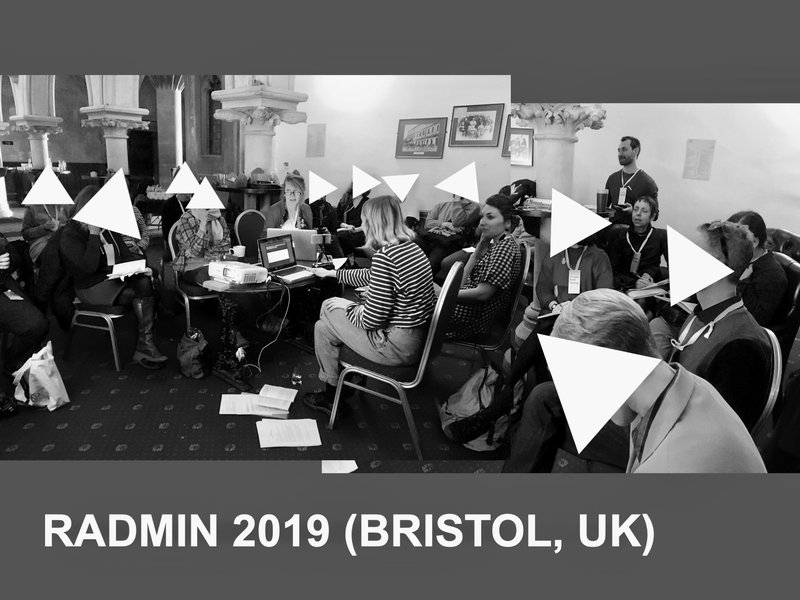
Radmin
Slicing across domains of artistic, domestic, academic, and entrepreneurial life, administration is something we all have in common. Both urgent and everyday, its practices flange and seep into individual and collective situations yet are rarely celebrated, and sometimes even barely acknowledged. Admin's signature activities—fundraising, budgeting, banking, emailing, accounting, meeting, managing, maintaining—are largely experienced as background drudgery, framed through individual failure or else stoic competence, to be endured but not investigated or encouraged.

In art and intellectual production, administration is an essential part of the process but the administrative haze that accompanies any project rarely moves out of the background and into the context of Making the Work. This cordon sanitaire is apparent both in the apparition of a dedicated administrator class at the institutional level—where the administrators often make up a separate team, with their own distinct language and methods—and as an individual practice, where we tend to class the administrative work that we all do as an infernal necessity, worlds apart from the creative ideas.
Against these pervasive conditions, the idea of “radmin” is to reclaim administration as a space for action, play, and intervention. While many of us are already engaged in radical and adventurous forms of administration, this is not normally named or specified as such, and so suffers from the kind of invisibility that comes from lacking a vocabulary or community of practice. Accordingly, we propose radmin as a gathering place for dark arts, wild experiments, and new collectivities.
As a practice, administration operates on a peer-to-peer basis (we pass notes, toil in teams, and share tips, hacks, and tricks). It provides a wealth of found materials with which to work, from the literary genre of the business plan to the material intricacies of regulatory structures. It can be scaled to suit a variety of different office contexts, and revisited as a daily practice, on company time. And it is, anyway, necessary.
Created: 13 Sep 2022 / Updated: 01 Sep 2023











